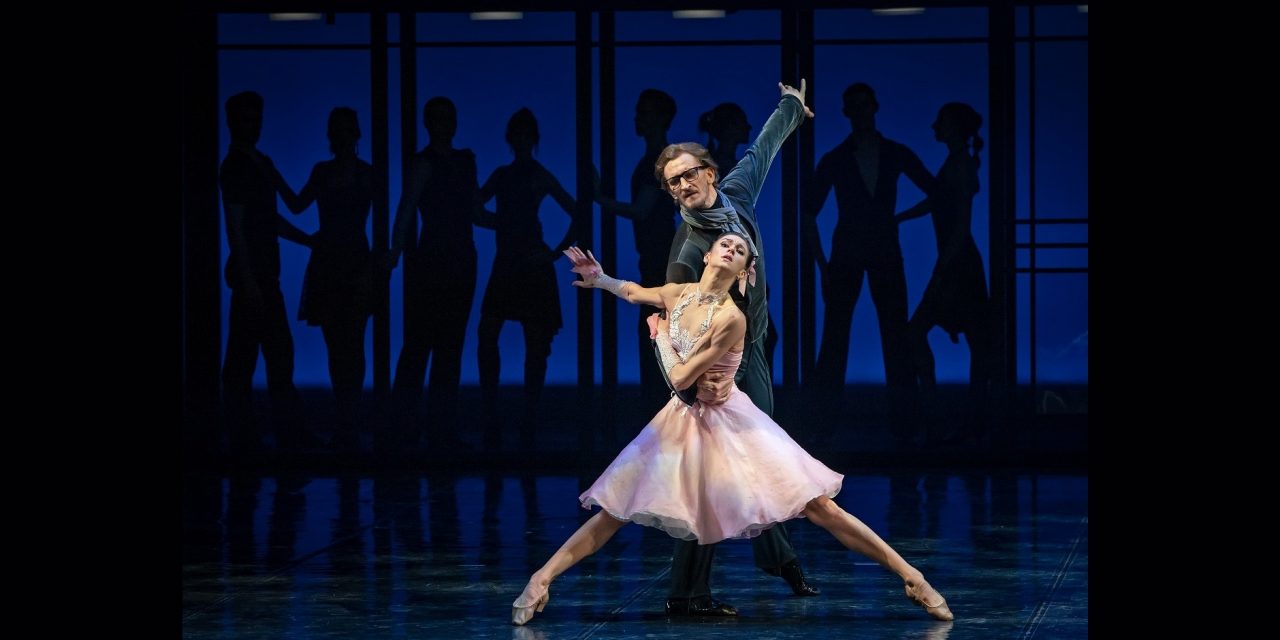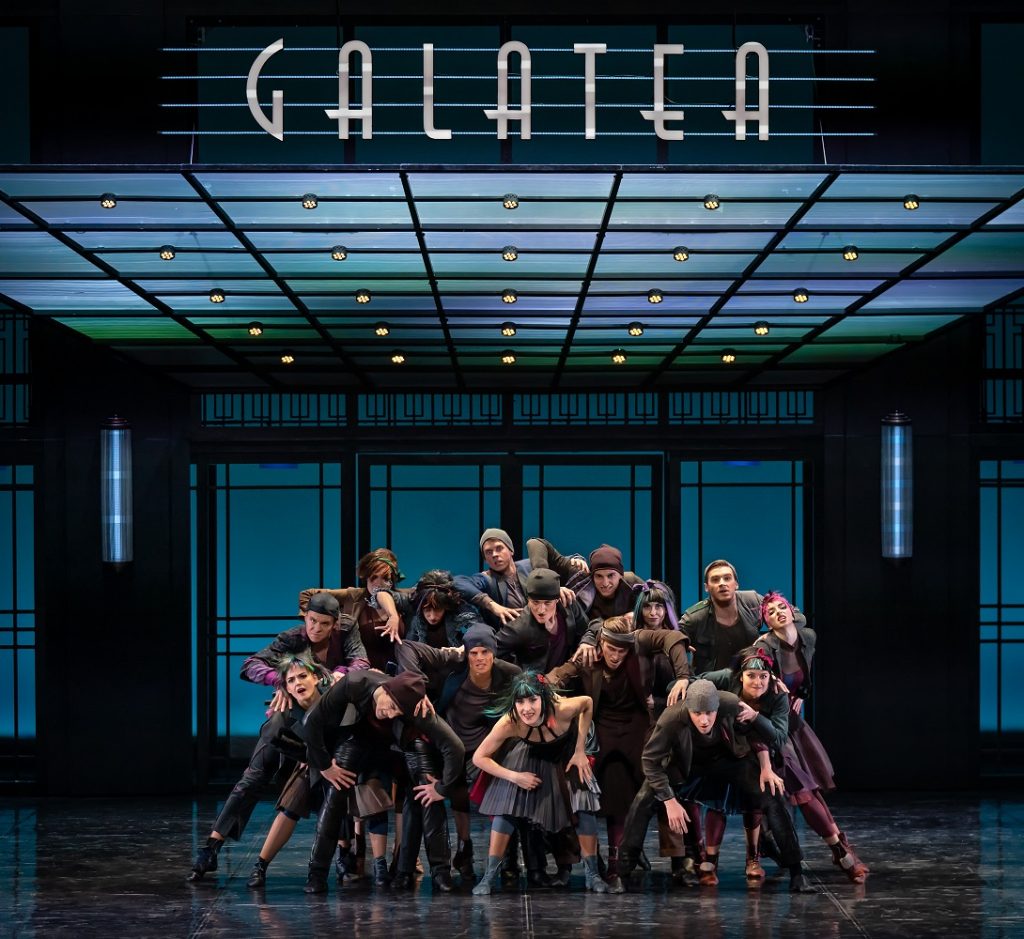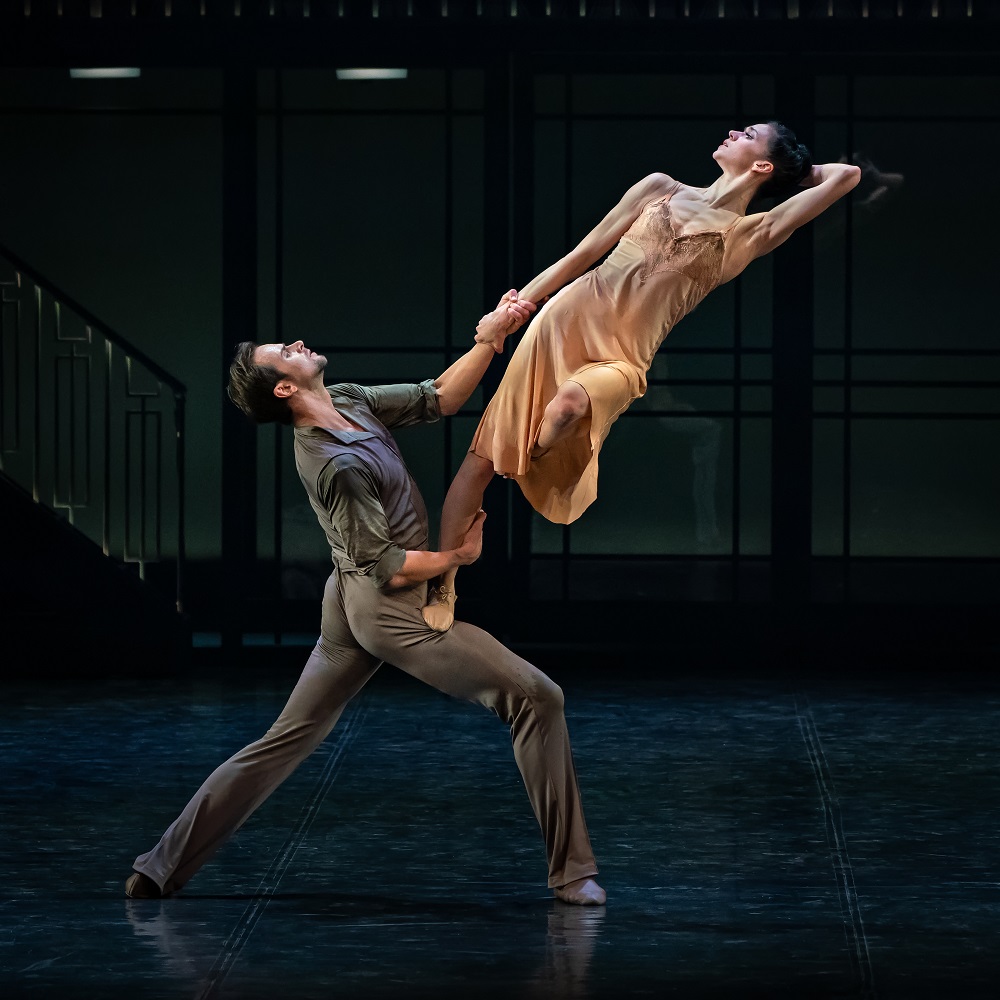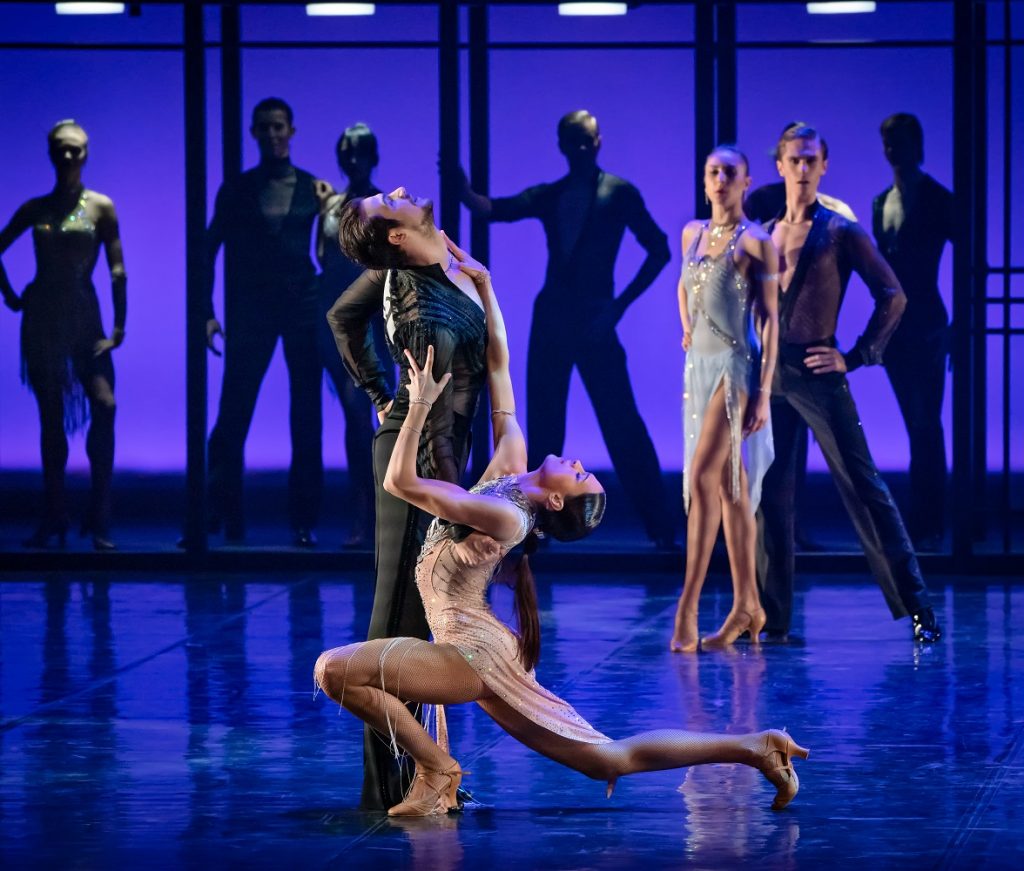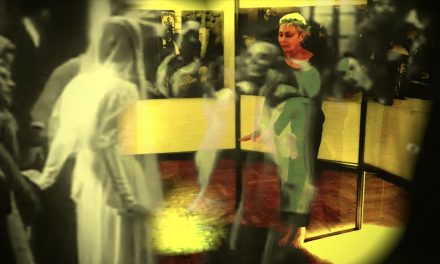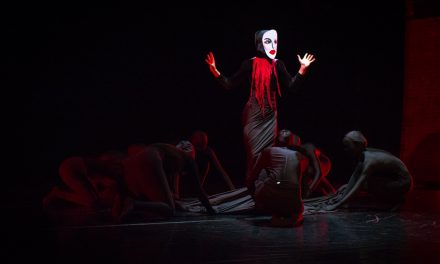The Segerstrom Center for the Arts hosted the Eifman Ballet of St. Petersburg on May 24 – 26, 2019 with a new ballet, The Pygmalion Effect, choreographed and staged by the sage and brilliant Boris Eifman. Born in Siberia and a graduate of the Leningrad Conservatory, he established the Leningrad New Ballet which eventually became The Eifman Ballet of St. Petersburg.
“The Pygmalion Effect” is a ballet based on an ancient Greek myth of a sculptor who falls in love with his own carved creation. Eifman has re-imagined this age-old story, as did George Bernard Shaw with Pygmalion, and Lerner and Loewe with My Fair Lady. Eifman’s version explores a young girl, Gala (Lyubov Andreyeva), who comes from the streets. Her alcoholic father Holmes and street family are all she’s ever known in her young life. That is, until she sees a Ballroom Dance Competition with the star performers, Leon (Oleg Gabyshev) handsome, dazzling and arrogant, and Tea (Alina Petrovskaya), his statuesque trophy partner, elegant, long legged, gorgeous. Leon and Tea‘s failure and eventual split up after they make a major error in their exhibition round and fail to win the first place award allows for the entrance of the most unlikely of replacements, Gala, the street girl. Gala’s desire to dance is whetted and she finds her way to the life changing experience of becoming a prized ballroom dancer. Her dream gets fulfilled when Leon wagers with the Coach (Igor Subbotin) that he can make Gala into a prize winner. This is not done easily and without a little help from some mechanical assistance when Leon trains her, retrains her in his image of her, and primes her to win the competition. She finally does so, but not without giving up a part of herself that eventually frames her future. Unable to go back and yet does not know how to move forward, the ballet ends with a poignant dream of what she imagines could be her life.
Eifman reveals his exploration of “How art and life are intricately intertwined but [are] never one and the same.” As always in The Eifman Ballet, the dancers are exquisite, being both beautiful, dramatic, and technically beyond even some of the best companies today. However unlike Eifman’s other works, this work appeared to be layered on a flimsy, and at times contrived premise.
Eifman decided to use the music of the Strauss family, Johann II, Josef and Eduard, with one exception, Mozart completes the ballet with its poignant ending to Piano Concerto No. 23. The use of Strauss waltzes, marches and gallops aid in making this a semi-comic and energetic ballet, yet Mozart with Andreyeva and Gabyshev gratefully brings the thoughtful, the technically stunning, the pensive and reflective which was a welcome relief to the never ending luster of the prior two hours.
Eifman is famous for his dramatic, psychological and often deeply dark themes, Anna Karenina, Russian Hamlet, The Seagull, Onegin, Rodin, Beyond Sin, Requiem. Uncharacteristically, this time he morphs into a light hearted, slap stick version of Pygmalion, in particular with it’s corps beginning; stomping, squared feet and bent knees, rough hewn costumes and disheveled hair, to depict the lower class of pick pockets, drunks and would be criminals. The staging, unlike many of his other work, tended to be unison, straight to the audience with nary any relief of the confrontation with use of curves, angles and graduated groupings and levels; no canons, rounds, or relief from the onslaught. Compared with many Broadway musicals seen these days, it was surprisingly tedious, and especially in contrast with his prior work.
In the effort to make humorous, there was a tendency towards mugging, instead of letting the movement tell the story. This exertion, even with a great dancer like Andreyeva, prevented us from loving the main character Gala as much as one would expect. Also, the use of mechanics in turning Gala into a mechanical dancing doll became a curious device as compared to using the relationship, the charm and Leon’s coercion to get the desired results.
As for showing relationships, there was a moment when the head Maid, Greta (Lilia Lishchuk) did a particularly revealing and sensual piece of dancing with Leon’s clothing, portraying the lust she had for her employer which told it all.
In conclusion, this piece, is of the highest standards compared to many other companies. In comparison to itself, however, did not have the impact of their prior works. It certainly is always a treat to see this remarkable company, to say nothing of the brilliant, beautiful and dramatic dancers and the genius of Eifman himself. We look forward to seeing the work again, and hope for potential to becoming a deeper, exhilarating, and more moving piece of dance theatre, explored fully for its poignantly real exposition, climax and denouement.
To learn more about the The Eifman Ballet of St. Petersburg, click here.
To see the performance calendar of Segerstrom Center for the Arts, click here.
Featured image: Eifman Ballet – The Pygmalion Effect – Photo by Michael Khoury

